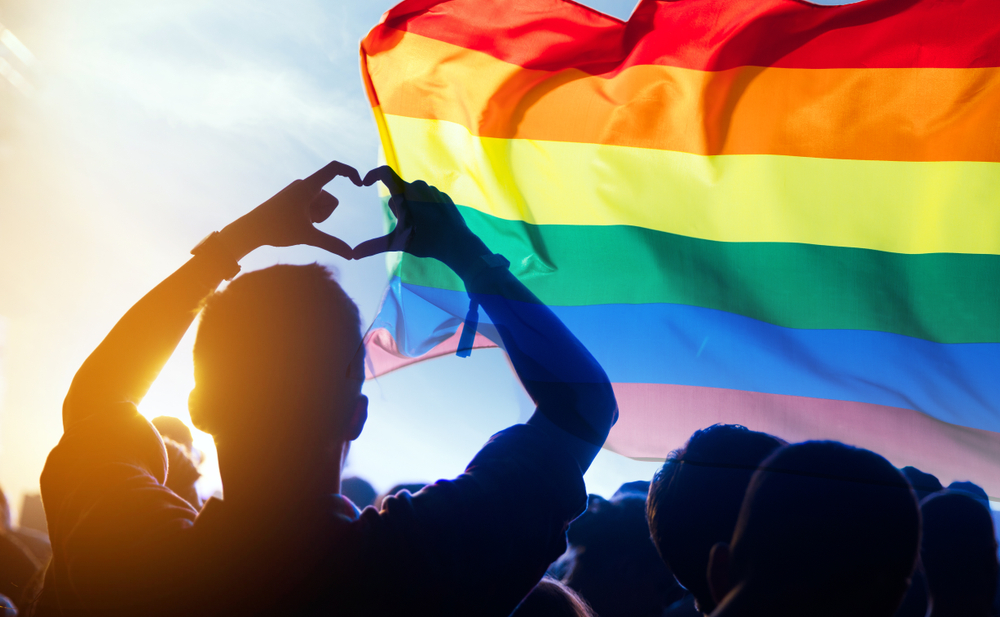- June 25, 2024
- by Shalini Murmu
- Mental Health
Imagine a world where the very essence of who you are is questioned, misunderstood, or even feared. A world where each day is a silent battle for acceptance, where your identity feels like a hidden treasure map only you can decipher. For many LGBTQIA+ youth, this is not a hypothetical scenario but a stark reality.
Beneath the surface of vibrant pride parades and the increasingly visible acceptance of LGBTQIA+ identities lies a quieter, more profound struggle. The mental health of LGBTQIA+ youth is often caught in the crossfire of societal expectations and personal authenticity. The young generations, while brimming with potential and promise, often face mental health challenges that are exacerbated by external pressures and internal conflicts.
As we peel back the layers of this intricate topic, it’s essential to understand why mental health within the LGBTQIA+ youth community demands our urgent attention. It’s more than just a matter of providing support, it’s about saving lives, nurturing potential, and fostering a society where everyone, regardless of their sexual orientation or gender identity, can thrive.
The Urgency Of Mental Health Support
Discrimination, bullying, family rejection, and societal stigma are not just abstract concepts; they are lived experiences that carve deep emotional scars.
Recent studies highlight the gravity of these struggles. According to The Trevor Project’s 2023 National Survey on LGBTQ Youth Mental Health, over 70% of LGBTQ+ youth reported experiencing discrimination due to their sexual orientation or gender identity. This statistic is more than a number; it’s a testament to the pervasive challenges people face daily.
- Increased Rates of Mental Health Disorders: LGBTQ+ youth are disproportionately affected by mental health disorders compared to their heterosexual and cisgender peers. The CDC’s Youth Risk Behavior Survey indicates that LGBTQ+ youth are more than twice as likely to experience persistent feelings of sadness or hopelessness. This sense of despair often leads to higher rates of mental health conditions such as anxiety and depression.
- Heightened Suicidal Ideation and Attempts: The statistics around suicidal ideation are particularly alarming. The Trevor Project’s survey found that 45% of LGBTQ+ youth seriously considered attempting suicide in the past few years, with transgender and non-binary youth facing even higher risks. This sobering reality underscores the critical need for mental health support and intervention tailored to the unique experiences of LGBTQ+ youth.
- Bullying and Harassment: Schools should be safe havens for learning and growth, yet for many LGBTQ+ youth, they are arenas of relentless bullying and harassment. GLSEN’s 2021 National School Climate Survey reports that 84% of LGBTQ+ students experienced verbal harassment, and more than 50% felt unsafe because of their sexual orientation. Such hostile environments contribute significantly to adverse mental health outcomes.
- Impact of Family Rejection: Family support is a cornerstone of adolescent development, yet many in the LGBTQ+ community face rejection from their families upon coming out. The Family Acceptance Project’s research reveals that LGBTQ+ youth who experience high levels of family rejection are more than eight times as likely to attempt suicide and nearly six times as likely to suffer from high levels of depression.
- Disparities in Access to Mental Health Care: Even when LGBTQ+ youth seek help, they often encounter barriers to accessing mental health care. The National Survey on LGBTQ Youth Mental Health found that 60% of LGBTQ+ youth who wanted mental health care in the past year were unable to get it. This gap in care is often due to financial constraints, lack of family support, or fear of encountering discrimination from healthcare providers.
Impact Of Disclosing Identities
Coming out, or disclosing one’s LGBTQIA+ identity to family, friends, and peers, is a significant milestone in the self-discovery process. However, it can also be a source of immense psychological stress and anxiety. The fear of rejection or negative reactions can lead to intense anxiety. Most people worry about how coming out will affect their relationships and whether they will be accepted or ostracized.
When families respond with acceptance and support, it can significantly bolster a young person’s mental health. Positive family reactions can provide a strong foundation for navigating the challenges that come with being LGBTQIA+. Unfortunately, not all reactions are supportive. Family rejection can lead to severe emotional distress, contributing to feelings of isolation, depression, and anxiety. Access to mental health help and supportive resources becomes even more critical in such cases.
Factors Impacting LGBTQIA+ Community’s Mental Health
- Internalized Stigma and Shame: Many struggle with internalized stigma and shame, stemming from societal prejudices and negative stereotypes. This internal conflict can lead to chronic stress, contributing to mental health issues such as depression and anxiety.
- Discrimination and Marginalization: Discrimination in various aspects of life, including school, community, and even within the family, can lead to feelings of worthlessness and despair. Continuous exposure to hostile environments can significantly affect mental health.
- Scarcity of LGBTQ+-Affirming Therapists: Finding therapists who are knowledgeable and affirming of LGBTQIA+ identities is crucial for effective mental health treatment. Unfortunately, such resources are not always readily available, limiting access to appropriate care.
- Economic and Geographic Barriers: Economic constraints and geographic limitations can further restrict access to mental health facilities and services, leaving many without the support they need.
- Housing Instability and Homelessness: Youth who are rejected by their families or who leave home due to an unaccepting environment often face homelessness. This lack of stable housing further complicates their ability to maintain good mental health and avoid substance abuse.
Substance Abuse As A Coping Mechanism
Substance abuse among LGBTQIA+ youth is a pressing issue, often rooted in the struggle to cope with intense stress and trauma. When faced with pervasive discrimination, family rejection, or social isolation, some turn to alcohol or drugs as a means to escape or numb their emotional pain. Substances can offer a temporary escape, allowing them to momentarily detach from their distressing reality but soon turn into a vicious cycle of addiction.
If there’s peer pressure within certain social circles, chances are that inclination towards substances can be an escape from reality or used as a form of bonding. Those who hold the trauma of hate crimes and harassment can lead to chronic stress and substances may be used as a way to dull the intense emotional pain associated with these experiences.
Importance Of Early Intervention And Support Systems
Early mental health help is crucial in addressing substance abuse and fostering positive well-being for LGBTQIA+ youth. These steps can prevent the escalation of substance use into a more severe problem and provide the foundation for long-term well-being.
- Recognizing Early Signs: Regular mental health assessments can help identify early signs of substance abuse and other mental health issues. Early detection allows for timely intervention, which can significantly improve outcomes.
- Behavioral Changes: Educators, family members, and peers should be vigilant for changes in behavior that may indicate substance use, such as withdrawal from social activities, declining academic performance, or secretive behavior.
Comprehensive Care And Support
Addressing the mental health challenges of the LGBTQIA+ community requires a holistic approach that encompasses early intervention, accessible mental health help, and robust support systems. By providing comprehensive and inclusive care, we can help them navigate their identities, cope with stress and trauma in healthy ways, and build resilient futures.
North America Behavioral Health Services‘s supportive team provides mental health resources with our vast network across the US for your holistic mental health recovery. Rest assured, you’ll be guided to renowned mental health facilities that understand and help you recover from your mental health struggles.
Share this article and spread awareness about the importance of mental health support for LGBTQIA+ youth. Your voice can help create a ripple effect of change, fostering a community where every individual can thrive.
If you or someone you know is struggling, reach out for help. Support is available, and no one has to face their challenges alone. For more information on how to access LGBTQIA+ mental health resources or connect with supportive mental health facilities, contact us today!
















